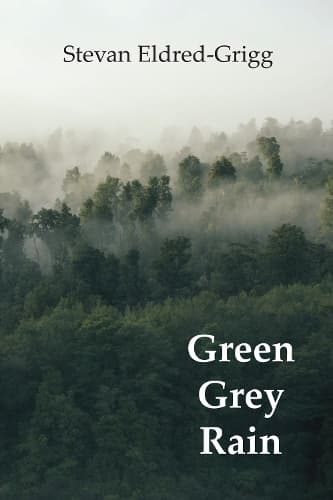
Green Grey Rain
Find your copy...
Rain on iron rooftops. A radio streaming the latest hit songs. It’s the early 1950s. The baby boom. Valerie is a talkative, singing, slanging, pregnant daughter of the slums. Gilbert, her husband, is the well-spoken son of a landed family. They already have three kids. Gilbert has just taken a job as paymaster at a coal mine. The family is about to start life in a green and black and red township on the West Coast. A little boy is born, almost in a taxi, and named Stevan. Green Grey Rain tells the story of the first years of that little boy. A story told by Stevan. A story told too by the hit songs he hears on the radio. And a story told by Valerie – who, with her sister, has already spoken to us in the pages of Oracles and Miracles. A story of working and playing, dreaming and singing, crying and laughing, hoping and wishing, bush, rain, rust, and the sooty streets of Blackball.
About the Author
Stevan Eldred-Grigg is an award-winning writer of best-selling New Zealand novels and history books. He writes about the West Coast, Canterbury and the whole of New Zealand. He writes about Samoa, Shanghai, Mexico and Australia. As a gay writer, a democratic writer, a comic writer, a satirical writer and a writer of tragedy, he takes on many topics. His most popular books to date have been the novel Oracles and Miracles and the history book Diggers, Hatters and Whores. He is an observer and critic of inequality. Often he probes inequality by using the lens of social class. Or he does the probing by asking questions about gender and race relations. He has looked at race, gender and class in many contexts. Workplace is one sort of context: he has written about people trying to find the meaning of their lives while working in department stores and factories, on sheep stations and goldfields, in military barracks and on battlefields, and above all in kitchens in the suburbs. He looks at the rich and the poor. He is as much an expert on the working class of Aotearoa as he is on the colonial gentry. Another context for many of his books is the body. Kiwi sex life plays a lively role in several of his novels and history books, as do drink and drugs. Although he is himself Pākehā, known to his readers as someone who looks closely at Pākehā society and Pākehā culture, he has also written about links and breaks between Māori and Pākehā as well as the lives of the New Zealand Chinese, and about the relationship between ‘White New Zealand’ and the peoples of the Pacific, above all the people of Samoa and the Cook Islands.





